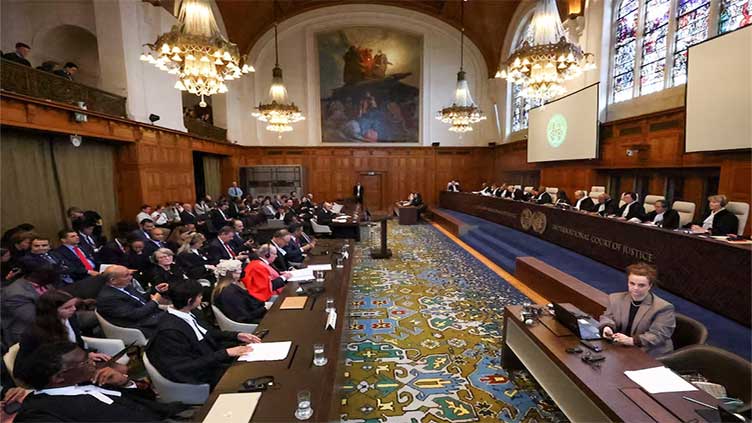World Court to rule on request to halt Israel's Rafah offensive

World
World Court to rule on request to halt Israel's Rafah offensive
THE HAGUE (Reuters) – Judges at the UN's top court will rule on Friday on South Africa's request to order Israel to halt its Rafah offensive and withdraw from Gaza, part of a wider case accusing Israel of genocide.
South Africa's lawyers asked the court last week to impose emergency measures, and said Israel's attacks on the southern Gaza city "must be stopped" to ensure the survival of the Palestinian people.
Rulings by the International Court of Justice (ICJ), also known as the World Court, are final and binding, but have been ignored in the past. The court has no enforcement powers.
Israel has repeatedly dismissed the accusations of genocide as baseless. It has argued in court that the operations in Gaza are self defence and targeted at Hamas militants who attacked Israel on Oct 7.
An Israeli government spokesman said on Thursday that "no power on Earth will stop Israel from protecting its citizens and going after Hamas in Gaza".
An Israeli military spokesman said the army is operating "carefully and precisely" in Rafah, where hundreds of thousands of Palestinians have sought refuge from Israeli bombing and operations elsewhere in the Palestinian enclave.
A decision against Israel by the highest UN legal body could pile more diplomatic pressure on the government of Prime Minister Benjamin Netanyahu.
Several European countries said on Wednesday they would recognise a Palestinian state, and the chief prosecutor of the International Criminal Court (ICC) - also based in The Hague - announced on Monday he had filed an application for arrest warrants against Netanyahu and Defence Minister Yoav Gallant, as well as leaders of Hamas.
The ICC prosecutes individuals for alleged war crimes, crimes against humanity and genocide, while the ICJ is the highest UN body for disputes between states.
The ICJ has previously rejected Israel's demand to throw out the overall case. The court has ordered it to prevent acts of genocide against the Palestinians and allow aid to flow, while stopping short of ordering a halt to Israeli military operations.
Israel launched its assault on Gaza after Hamas-led militants stormed into southern Israel, killing 1,200 people and seizing more than 250 hostages, according to Israeli tallies. More than 35,000 Palestinians have since been killed in the offensive, Gaza's health ministry says.


